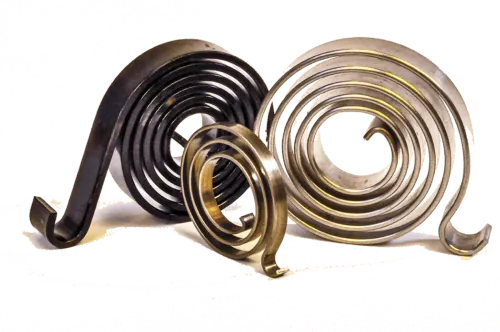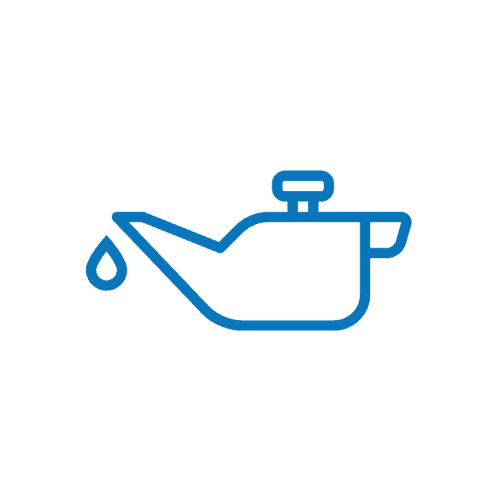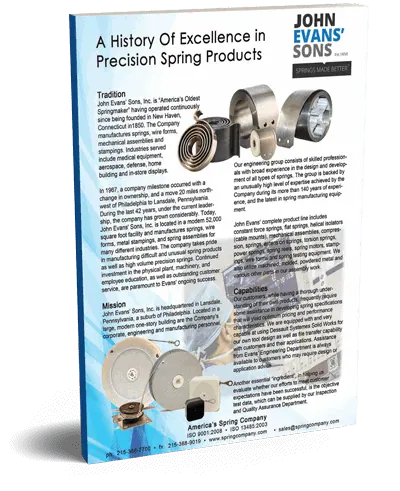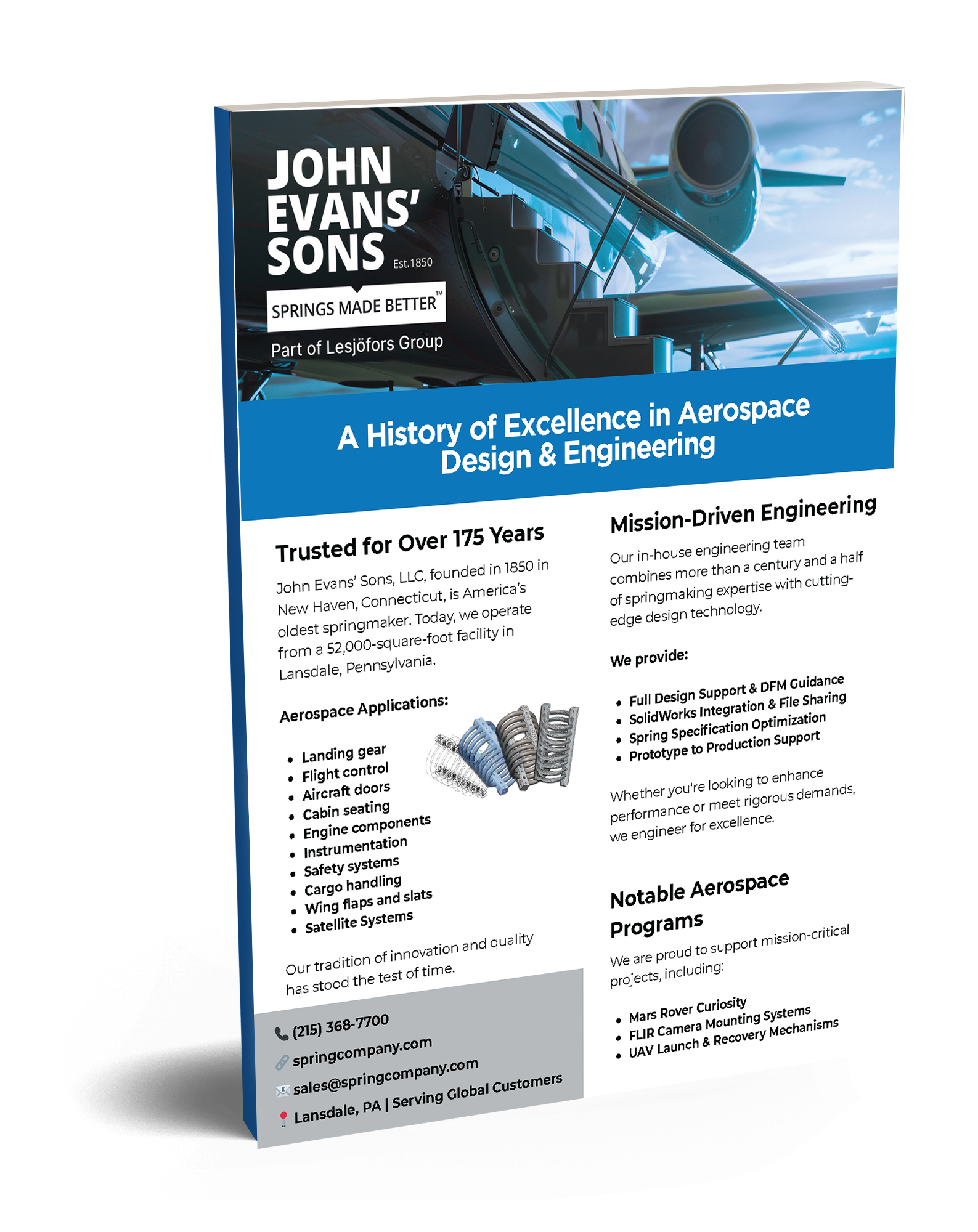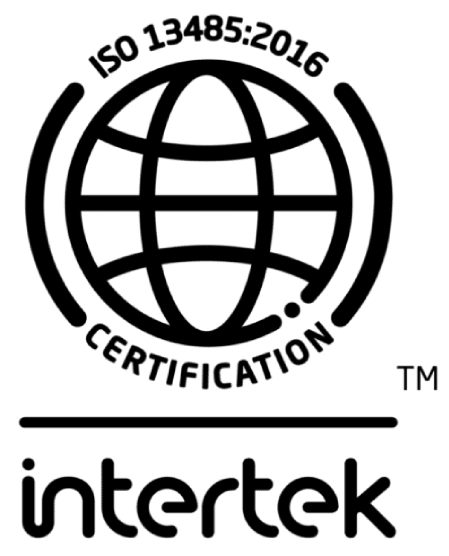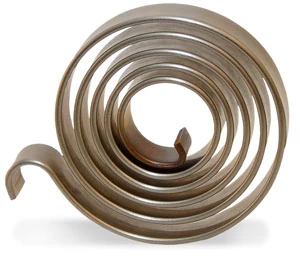
What Is a Spiral Torsion Spring, and How Is It Manufactured?
Spiral torsion springs are mechanical components designed to store and release energy by applying rotational force. This rotational force acts in two directions with a “return to center”. The springs deliver a linear torque per revolution. When the deflection exceeds itself, the coils begin to “close-out”, generating friction as they meet. Depending on the spring’s design, the torque will increase rapidly due to the “close-out” friction.
Spiral torsion springs are particularly effective in delivering high torque over a short rotational distance. During manufacturing, these springs are formed into a concentric spiral shape, optimizing their performance for specific applications. Using flat types of steel and their unique shape, spiral torsion springs are best suited for confined spaces.
Industries
Applications
In specific applications, spiral torsion springs are the ideal choice. They provide linear torque to support lift, rotational movement, and closing or opening force for various industries.
Common Spiral Torsion Applications Include:
Motor Brush Assemblies
The spiral torsion spring plays a crucial part in the longevity and efficiency of electric motors by:
- Maintaining consistent pressure on carbon brushes responsible for conducting electrical current between the stationary and rotating parts.
- Ensuring carbon brushes remain in optimal contact with the commutator.
Industrial
Due to their store and release of rotational energy, spiral torsion springs are found in:
- Clutches and brakes
- Retractable mechanisms
- Valves and actuators
- Counterbalance systems
- Conveyor systems
- Recoil mechanisms
- Rotary dampers
- Winding and rewinding devices
They maintain consistent torques and tension in compact spaces, generate a rotational force and perform consistently under heavy loads.
Dental X-ray Head Unit
By counterbalancing the weight of the X-ray head and enabling smooth, stable positioning, spiral torsion springs improve both the functionality and ergonomics of dental X-ray head units. They provide controlled movement and positioning of the X-ray head.
Jet Stairs or Main Door
Work as counterbalances for smooth deployment of stairs, reducing operator effort, stability and control. For main aircraft doors, spiral torsion springs assist in opening and closing, maintaining door position and emergency door operation. They reduce the wear and tear on components, ensuring smooth operation, reduced force requirement, increased safety, and enhanced durability.
Armored Hatch Covers
Commonly used in military vehicles, tanks, and other armored equipment. Spiral torsion springs enhance the functionality, safety, and usability of the heavy protective covers. They are integrated into the hinge mechanism of armored hatch covers that assist in the opening and closing process. Counterbalancing the weight of the hatch, they maintain stability and position, support emergency operation, reduce wear and tear on the hinge mechanism, noise reduction (opening and closing hatch), and support motorized or hydraulic systems.
Cargo Doors
Used in various industries including aviation, automotive, and shipping to facilitate smooth and controlled opening and closing. Crucial to managing the heavy weight of cargo doors while ensuring safety and ease of operation.
Motor Assist for Robotic Joints
Enhances the functionality, efficiency, and precision of robotic movements. Spiral torsion springs play a crucial role in balancing forces, reducing motor workload, and improving energy efficiency. Precision and control especially in complex or multi-axis joints. Reduced motor size, weight of device, and power requirements. Soft robotics and adaptive motion, energy efficiency and conservation, safety and impact absorption, and increased durability and reduced maintenance.
Trailer Tarp Systems
Assist in the deployment and retraction of the tarp while counterbalancing the weight with controlled movement.
Benefits of Spiral Torsion Springs
- Compact and efficient energy storage
- High torque with minimal rotation
- Durability and longevity
- Versatility and customizability
- Lower torque loss and stress
- Ease of integration and adjustment
- Protection and resilience
Performance Considerations for Spiral Torsion Springs
- Type of Material
- Lubrication
- Chemical Agents
- Temperature
- Speed & Acceleration
Materials
Various materials for projects or prototypes with distinct advantages:
- Carbon Steel- may require pre-galvanized coatings or additional corrosion protection.
- Stainless Steel- excellent heat and corrosion resistance properties.
- Specialty Alloys- metals such as chromium alloys and cold-drawn nickel are best for applications requiring high corrosion resistance when exposed to extreme temperatures.
Spiral Torsion Mounting Methods
- Hubs or collets, tabs and keyways, hooks and pin, hook and slot mounted on.
- Clamped- not free to move or hinged- free to move.
Product Resources
Why Choose John Evans’ Sons for Custom Wire Forms
John Evans’ Sons is an industry-leading provider of custom spiral torsion springs designed to meet the needs of a broad range of applications. We develop these springs using materials such as stainless steel, specialty alloys, and carbon steel to deliver significant torque with minimal rotation. We offer several spiral torsion mounting methods to provide ideal results for various settings.
Founded in 1850, our company is known in the industry as America’s Oldest Springmaker.
When you turn to John Evans’ Sons instead of other wire form manufacturers, you’ll benefit from:
- More than one and a half centuries of multi-industry expertise and experience
- Custom solutions for wire forms in the materials and sizes that work best for you
- Innovative prototyping and manufacturing processes with efficient, high-end equipment
